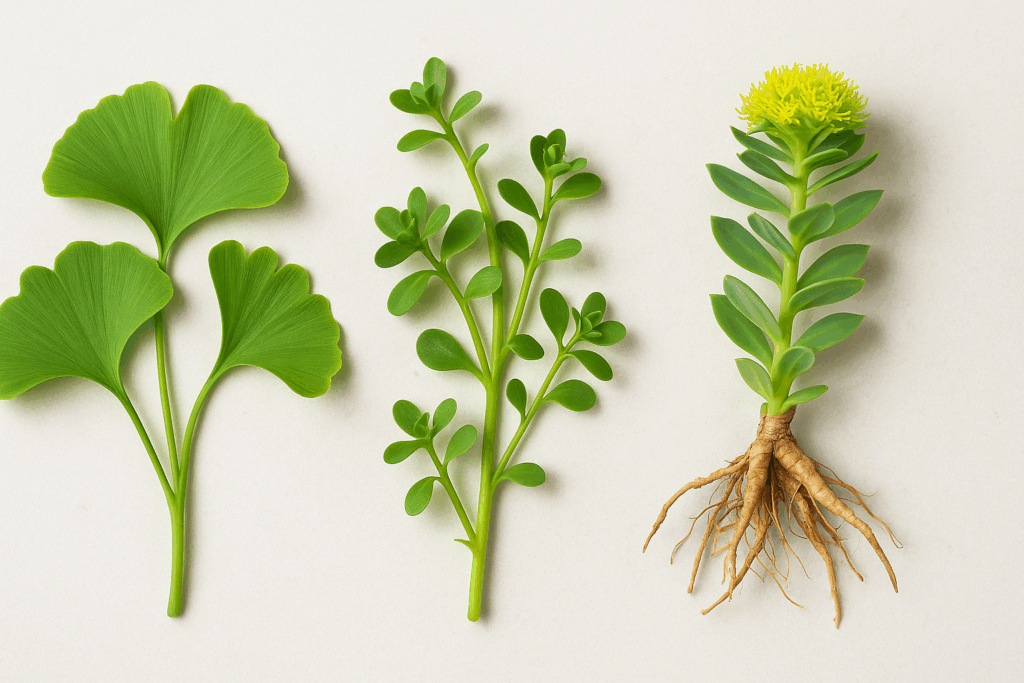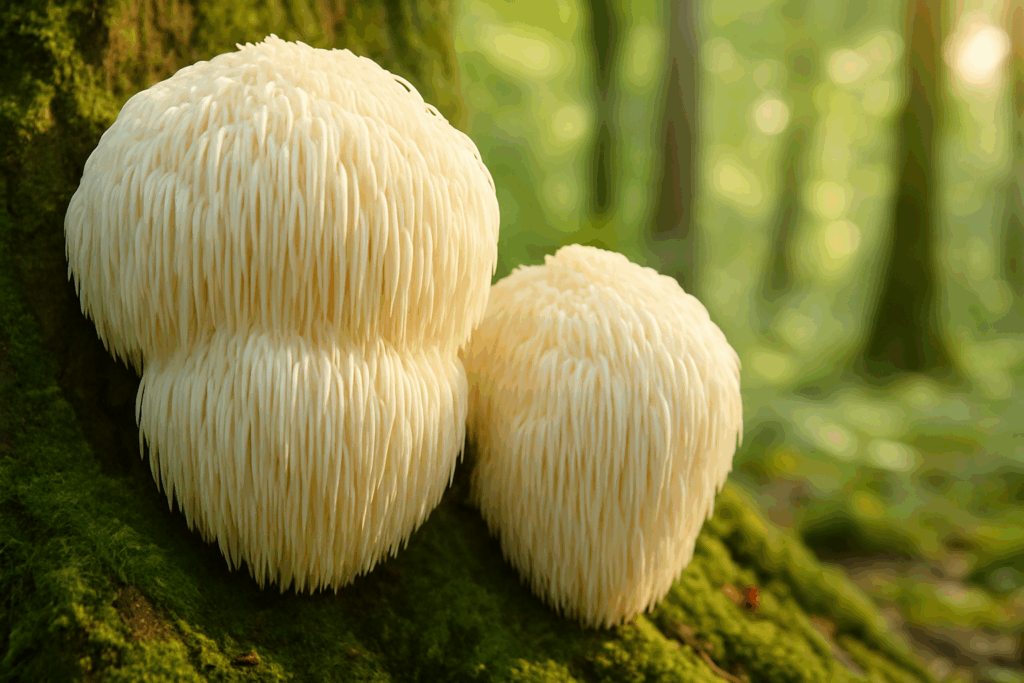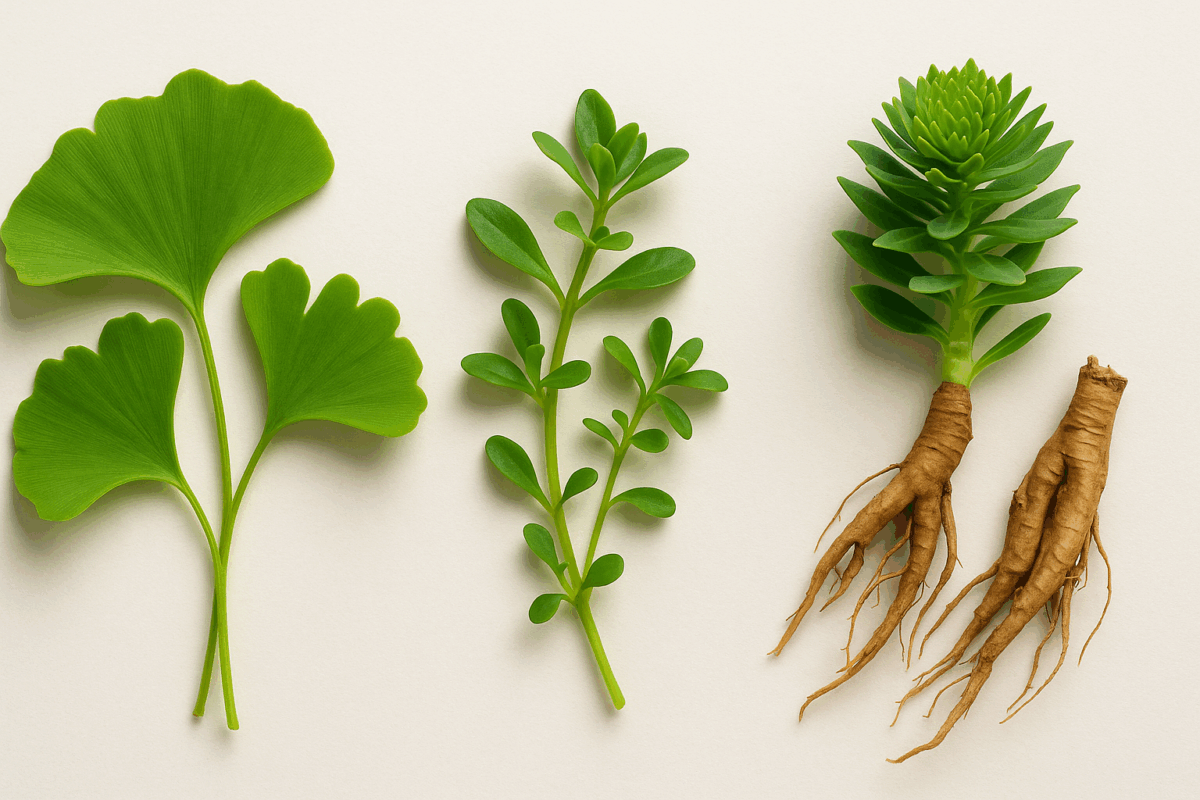Attention Deficit Hyperactivity Disorder (ADHD) is a condition that impacts many people worldwide, and women are no exception. While it is often diagnosed in childhood, ADHD can persist into adulthood, and its symptoms can affect personal, professional, and social functioning. Women may experience unique challenges related to ADHD, including difficulty maintaining focus, managing stress, and experiencing memory issues. Fortunately, nature provides a wide array of herbs that may help address these issues by supporting cognitive function, promoting mental clarity, and improving focus.
In this article, we will explore several herbs that are known for their beneficial effects on ADHD symptoms in women. We will dive deep into their scientifically backed mechanisms, potential health benefits, and how they can be integrated into a natural wellness regimen. Additionally, we’ll discuss how ADHD symptoms may manifest in women and why herbal remedies can be a valuable part of managing these challenges.
Understanding ADHD in Women: A Unique Experience
ADHD is often perceived as a disorder that primarily affects men, but research has shown that women with ADHD face unique challenges. In many cases, women may go undiagnosed or misdiagnosed, as their symptoms are often more subtle compared to those seen in men. While hyperactivity is a hallmark symptom of ADHD in boys, women often present with more inattentive symptoms, such as difficulty focusing, forgetfulness, and disorganization.
Women with ADHD are also more likely to experience co-occurring mental health conditions, such as anxiety, depression, and low self-esteem. These factors can exacerbate the challenges of living with ADHD and may contribute to difficulties in managing daily responsibilities, maintaining relationships, and excelling in professional settings. Understanding these nuances is crucial for addressing ADHD in women, as it allows for more effective management strategies that consider the broader psychological and emotional landscape.
While traditional treatment options, such as stimulant medications, can be effective in managing ADHD symptoms, they may come with side effects and may not be suitable for everyone. This is where natural remedies, such as herbal supplements, can play a crucial role in supporting cognitive function and mental wellness in women with ADHD.

The Role of Herbs in Supporting Cognitive Function
Herbs have been used for centuries in traditional medicine to enhance brain function and treat cognitive disorders. Many of these plants contain compounds that can support memory, focus, and overall brain health. The idea behind using herbs for ADHD treatment is not to replace conventional therapies but to complement them, offering a holistic approach to managing the condition. Several herbs have been scientifically shown to improve focus, reduce anxiety, and support mental clarity—all of which are important for women with ADHD.

1. Ginkgo Biloba: Enhancing Memory and Focus
Ginkgo biloba is one of the most well-known herbs used to support cognitive function, and it has been the subject of numerous studies examining its effects on memory, focus, and mental clarity. This herb works by increasing blood flow to the brain, which enhances oxygen and nutrient delivery to brain cells. Additionally, ginkgo has antioxidant properties that help protect the brain from oxidative stress and may support neuroplasticity, which is the brain’s ability to adapt and reorganize itself.
For women with ADHD, ginkgo biloba can be particularly beneficial in improving attention and reducing mental fog. Studies have shown that ginkgo can help with short-term memory and cognitive speed, making it easier to focus on important tasks. As ADHD often involves problems with memory recall and sustained attention, ginkgo may be a valuable addition to an ADHD management plan.
2. Rhodiola Rosea: Reducing Stress and Improving Focus
Rhodiola rosea, also known as “golden root,” is an adaptogenic herb that helps the body cope with stress. This herb is especially beneficial for women with ADHD, as stress is a common trigger that exacerbates symptoms. Rhodiola works by balancing the levels of cortisol, the body’s primary stress hormone, and supporting the adrenal system. By reducing stress levels, rhodiola can help women with ADHD feel more focused and less overwhelmed.
In addition to its stress-reducing effects, rhodiola has been shown to improve cognitive performance, particularly in areas of attention, concentration, and memory. Some studies have found that rhodiola may even enhance mood and combat fatigue, which are common challenges for individuals with ADHD. By promoting mental clarity and focus while alleviating stress, rhodiola can be an essential tool for women managing ADHD symptoms.

3. Bacopa Monnieri: Supporting Memory and Cognitive Function
Bacopa monnieri, also known as Brahmi, is a herb traditionally used in Ayurvedic medicine to improve memory, concentration, and cognitive function. It is particularly well-known for its ability to enhance memory recall and reduce cognitive decline. Bacopa contains bacosides, compounds that have been shown to improve the transmission of nerve impulses and enhance neuronal communication.
For women with ADHD, bacopa may be particularly effective in improving working memory, which is often impaired in individuals with the condition. Working memory refers to the brain’s ability to hold and manipulate information in real time, which is essential for tasks that require sustained focus. Bacopa has been shown to enhance this cognitive function, making it easier for individuals with ADHD to manage complex tasks and retain important information.
4. Gotu Kola: Promoting Clarity and Cognitive Health
Gotu kola, a herb native to Asia, has long been used to promote mental clarity, improve memory, and support overall cognitive health. It is believed to improve circulation, which enhances blood flow to the brain, similar to ginkgo biloba. Gotu kola also contains compounds that support the growth and regeneration of brain cells, particularly in the hippocampus, a region of the brain involved in learning and memory.
Research on gotu kola has shown promising results in its ability to improve cognitive function, particularly in older adults experiencing age-related cognitive decline. For women with ADHD, gotu kola may help sharpen focus and clarity, making it easier to concentrate on tasks and remember important things to memorize.
5. Ashwagandha: Reducing Anxiety and Improving Focus
Ashwagandha is another adaptogenic herb that can be highly beneficial for women with ADHD. One of the key challenges for individuals with ADHD is managing anxiety, which can significantly impair cognitive function and focus. Ashwagandha works by balancing cortisol levels, promoting relaxation, and reducing the effects of stress on the body.
In addition to its stress-reducing effects, ashwagandha has been shown to improve attention, focus, and memory. Some studies have even suggested that ashwagandha can help increase mental stamina and endurance, allowing individuals to stay focused for longer periods. For women with ADHD who struggle with anxiety and focus, ashwagandha may offer a natural solution to help manage these symptoms.

6. Lion’s Mane Mushroom: Supporting Brain Health and Neurogenesis
Lion’s mane mushroom is a powerful nootropic herb known for its ability to stimulate the growth of new brain cells, a process known as neurogenesis. This herb is particularly beneficial for improving cognitive function, memory, and focus. Lion’s mane contains compounds called hericenones and erinacines, which promote the production of nerve growth factor (NGF), a protein that plays a crucial role in the growth and maintenance of brain cells.
For women with ADHD, lion’s mane can be a game-changer in supporting cognitive health. By promoting neurogenesis, lion’s mane may help improve brain function and support mental clarity. It is also believed to have mood-enhancing effects, which can help alleviate the emotional difficulties often associated with ADHD.
7. Peppermint: Enhancing Focus and Mental Clarity
Peppermint is a well-known herb that can provide a quick mental boost, particularly in terms of focus and clarity. The menthol in peppermint has been shown to have stimulating effects on the brain, improving cognitive performance and alertness. In addition to enhancing focus, peppermint has also been shown to reduce mental fatigue, which is a common challenge for individuals with ADHD.
For women with ADHD who struggle with maintaining focus throughout the day, peppermint can be a useful tool for boosting concentration and staying on task. Whether consumed as a tea, in capsule form, or even through aromatherapy, peppermint can provide a natural solution for improving focus and reducing cognitive fatigue.

Frequently Asked Questions (FAQ) on Best Herbs for ADHD in Women: Science-Backed Natural Remedies
How do herbs help women with ADHD?
Herbs can offer significant support for women dealing with ADHD by addressing common symptoms such as inattention, forgetfulness, and anxiety. Many herbs possess adaptogenic properties, which help manage stress and promote mental clarity. For instance, rhodiola rosea is known for reducing cortisol levels, which can help calm an overactive mind. Bacopa monnieri, on the other hand, enhances memory recall, making it easier for women to remember important things to memorize. Integrating herbs into an ADHD management plan can complement other therapies and improve focus, mental clarity, and memory.
What are the best herbs for improving focus and memory in women with ADHD?
Some of the best herbs for improving focus and memory in women with ADHD include Ginkgo biloba, Bacopa monnieri, and Rhodiola rosea. Ginkgo biloba increases blood flow to the brain, enhancing cognitive function and memory retention, which is particularly helpful for things to memorize in a work or study environment. Bacopa monnieri supports memory recall and cognitive speed, making it easier to focus on tasks at hand. Additionally, Rhodiola rosea can help reduce stress, which often interferes with concentration and focus, particularly when there are many important things to remember during a busy day.
Can herbal remedies replace traditional ADHD treatments?
Herbal remedies should not replace traditional ADHD treatments such as medication and therapy but can be used as complementary tools to manage symptoms. For women with ADHD, herbs like ashwagandha and lion’s mane mushroom provide natural support by improving focus, memory, and overall brain health. However, it is important to consult with a healthcare professional before starting any herbal regimen, especially if you are already taking prescription medications. Herbs can be a helpful part of an overall ADHD management plan, but they should be integrated carefully alongside other treatments.
Are there any side effects associated with using herbs for ADHD?
While herbs are generally safe when used as directed, they may have side effects or interact with other medications. For example, Rhodiola rosea, though effective in reducing stress, can cause insomnia or irritability in some people if taken in excess. Similarly, Ginkgo biloba may interact with blood-thinning medications, increasing the risk of bleeding. It is crucial to be aware of potential side effects and talk to a healthcare provider before starting herbal treatments, especially for women who are managing other health conditions or taking prescription medications.
How does Ginkgo biloba help with ADHD symptoms in women?
Ginkgo biloba helps improve cognitive function by enhancing blood flow to the brain. This increased circulation provides the brain with more oxygen and nutrients, supporting memory, concentration, and mental clarity. For women with ADHD, Ginkgo biloba is particularly useful for managing symptoms such as forgetfulness and difficulty focusing on tasks. Additionally, the herb’s antioxidant properties help protect the brain from oxidative stress, which can further enhance cognitive function and memory. When trying to remember important things to memorize or maintain focus on a project, Ginkgo biloba can support these tasks effectively.
Can Rhodiola rosea help with ADHD-induced fatigue?
Yes, Rhodiola rosea is particularly beneficial for managing ADHD-induced fatigue. Many women with ADHD experience mental and physical exhaustion due to constant task-switching and difficulty concentrating. Rhodiola rosea is an adaptogen, meaning it helps the body adapt to stress and fight fatigue. By balancing cortisol levels and supporting the adrenal system, it can increase energy levels, enhance focus, and reduce feelings of burnout. For women managing ADHD symptoms, Rhodiola rosea can provide a natural energy boost, making it easier to stay on top of things to memorize and focus throughout the day.
Is Bacopa monnieri safe for long-term use in ADHD management?
Bacopa monnieri is generally considered safe for long-term use, especially when taken in recommended doses. This herb is well-known for its ability to enhance memory, reduce anxiety, and improve cognitive performance over time. Studies have shown that Bacopa monnieri may have neuroprotective effects, making it a great addition to long-term ADHD management. For women who struggle with remembering important things to memorize or experience mental fog, Bacopa monnieri can provide sustained cognitive benefits. However, like any supplement, it is essential to consult a healthcare provider before starting a long-term regimen to ensure it is right for you.
How do herbs like Ashwagandha support women with ADHD?
Ashwagandha is an adaptogenic herb that helps manage stress by regulating cortisol levels. For women with ADHD, high stress can exacerbate symptoms, leading to forgetfulness and a lack of focus. Ashwagandha can help balance stress hormones, reducing anxiety and promoting a calm, focused mindset. Additionally, it may support mental clarity, making it easier for women to recall important things to memorize and stay on task. Ashwagandha’s calming effects can also help prevent the emotional challenges that many women with ADHD face, such as irritability or mood swings, leading to a more stable emotional state.
What is the role of Lion’s Mane Mushroom in managing ADHD symptoms in women?
Lion’s Mane Mushroom is renowned for its ability to stimulate the growth of nerve cells in the brain, a process known as neurogenesis. This herb contains compounds that promote the production of nerve growth factor (NGF), which is crucial for brain health and cognitive function. For women with ADHD, Lion’s Mane can help improve focus, memory, and mental clarity. By supporting neurogenesis, Lion’s Mane aids in cognitive recovery, helping to restore focus during mentally demanding tasks and making it easier to retain important things to memorize. Furthermore, its mood-enhancing properties can help women better manage the emotional aspects of ADHD.
Can peppermint help women with ADHD focus better?
Yes, peppermint is an effective herb for boosting cognitive performance and focus. The menthol in peppermint has been shown to improve concentration, alertness, and mental clarity. For women with ADHD, peppermint can help reduce mental fatigue, which is often a barrier to staying focused and remembering important things to memorize. Peppermint can be consumed as a tea or used as an essential oil in aromatherapy to increase cognitive alertness. It’s a quick and natural remedy for those struggling to maintain attention, particularly during long tasks or when there are multiple things to remember throughout the day.

Conclusion: Integrating Herbs into an ADHD Management Plan
Incorporating herbs into an ADHD management plan can provide significant benefits for women seeking natural solutions to improve focus, memory, and mental wellness. While herbs like ginkgo biloba, rhodiola rosea, bacopa monnieri, and others may not replace traditional treatments, they can serve as valuable complementary therapies. When used alongside other strategies, such as cognitive-behavioral therapy (CBT), lifestyle changes, and proper nutrition, herbs can help women with ADHD manage their symptoms more effectively.
As with any supplement, it is essential to consult with a healthcare provider before starting a new herbal regimen, especially if you are currently taking prescription medications. By taking a holistic approach to ADHD management and utilizing the power of natural herbs, women can find relief from the challenges of this condition and achieve greater mental clarity, focus, and overall well-being.
Remember, managing ADHD is a journey, and incorporating the right herbs may be an important step toward achieving better focus, memory, and mental clarity. Whether you are looking for things to memorize more easily or simply hoping to manage your ADHD symptoms more effectively, these herbs may offer the support you need to improve your cognitive function and live a more balanced life.not only focus, but also a greater sense of empowerment, vitality, and connection to one’s cognitive potential.
Further Reading:
ADHD and Complementary Health Approaches: What the Science Says


